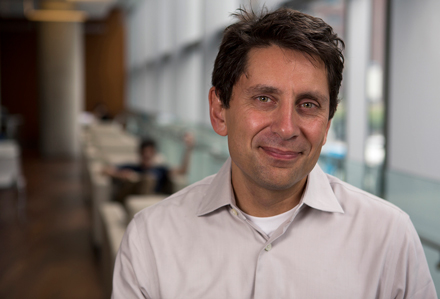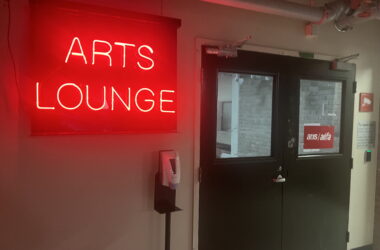The McGill Commitment, a project spearheaded by the Office of the Deputy Provost Student Life and Learning Ollivier Dyens, has gained significant traction after being granted a $300,000 yearly fund from the Office of Provost and Vice-Principal Academic Christopher Manfredi in May 2016. Since its conception in Fall 2015, the Commitment has organized its initiatives into four pillars that embody Dyens’ vision for McGill’s future: International campus, innovative academics, leading research, and fostering self-development.
“The McGill Commitment, essentially, is to help students and provide students with what we call a 21st-century education,” Dyens said. “What [kinds] of skills can we give students that will be useful for the next 50 years?”
The Commitment includes a wide variety of faculty-specific projects, as well as initiatives for McGill’s School of Continuing Studies. The Provost’s fund has already been allocated to a number of initiatives in Fall 2016, including $100,000 towards the Faculty of Science’s Labs Without Borders program, which sends students to conduct field research for a semester at various locations around the world, including the Arctic.
The Skills Development Program, which will launch in Fall 2017, was given $145,000 from the Provost’s fund. The program is intended to encourage undergraduate students to expand their soft and professional skills in free co-curricular workshops. The workshops will be organized into five skill-based streams, tentatively named global citizenship, health and wellness, leadership, collaboration, and discovery. Sophia Kapchinsky, the Skills Development officer at Teaching and Learning Services, has coordinated the Program since its inception in July 2016.
“Our students do need education outside of their course-based curriculum,” Kapchinsky said. “It's impossible to learn how to collaborate, or how to become a better writer, or how to negotiate, or how to engage with your community by being taught [in a course lecture]. You have to go through an experiential learning process in order to gain those skills.”
The Skills Development Program, which is set to launch in September 2017, will draw contributions from faculty units, administrative units, student groups, and additional offices, including McGill IT and the McGill Office for Sustainability to design the project. It will partner with over 2,000 existing workshops at McGill to curate a curriculum based around improving particular skills. The program will continue to expand its list of workshops by building campus partnerships.
“Students can almost choose their own adventure, in the sense that they can choose which stream of the program to participate in,” Kapchinsky said. “If they want to develop their leadership skills, they can participate in the leadership stream. [….] There are different streams, and you can take the workshops and the offerings in any order you want to build [those] streams and to finish the program.”
The Skills Development Program, which falls under the McGill Commitment’s fostering self development pillar, focuses on providing students tools to cope with the personal growth they experience in university.
“It’s often the first time that students are moving out of their parents’ house, the first time that they’re starting to manage their own finances, the first time they’re managing their own housing situation,” Kapchinsky said. “They’re moving into this bigger pond where they become a smaller fish.”
In addition to the McGill Commitment, the Vice Provost’s office has also been granted $7.8 million over three years from the Ministère de l'Éducation et de l'Enseignement supérieur for student professional development and to help them intern abroad.
“We’re going to put $5.8 million into increasing internships, but mostly [into] increasing mobility,” Dyens said. “[We’ll be] funding students so they can go abroad, so they can go to field courses, so they can have an internship, and we can pay transport and room and board. We’re really putting a lot of emphasis on trying to develop [students’] professional skills.”
The Quebec fund would subsidize study abroad and field semesters, most of which include significant travel and living fees. Kalyna Kruczowyj, the International Education officer, says that these costs are the primary reason students are unable to pursue studies abroad.
“Every time a survey [about study abroad] comes out, it’s always because of financial considerations that students don’t participate in a lot of these things,” Kruczowyj said. “Some of them, they can participate in some that are less expensive [….] Basically, the funding is trying to open accessibility to all students.”








